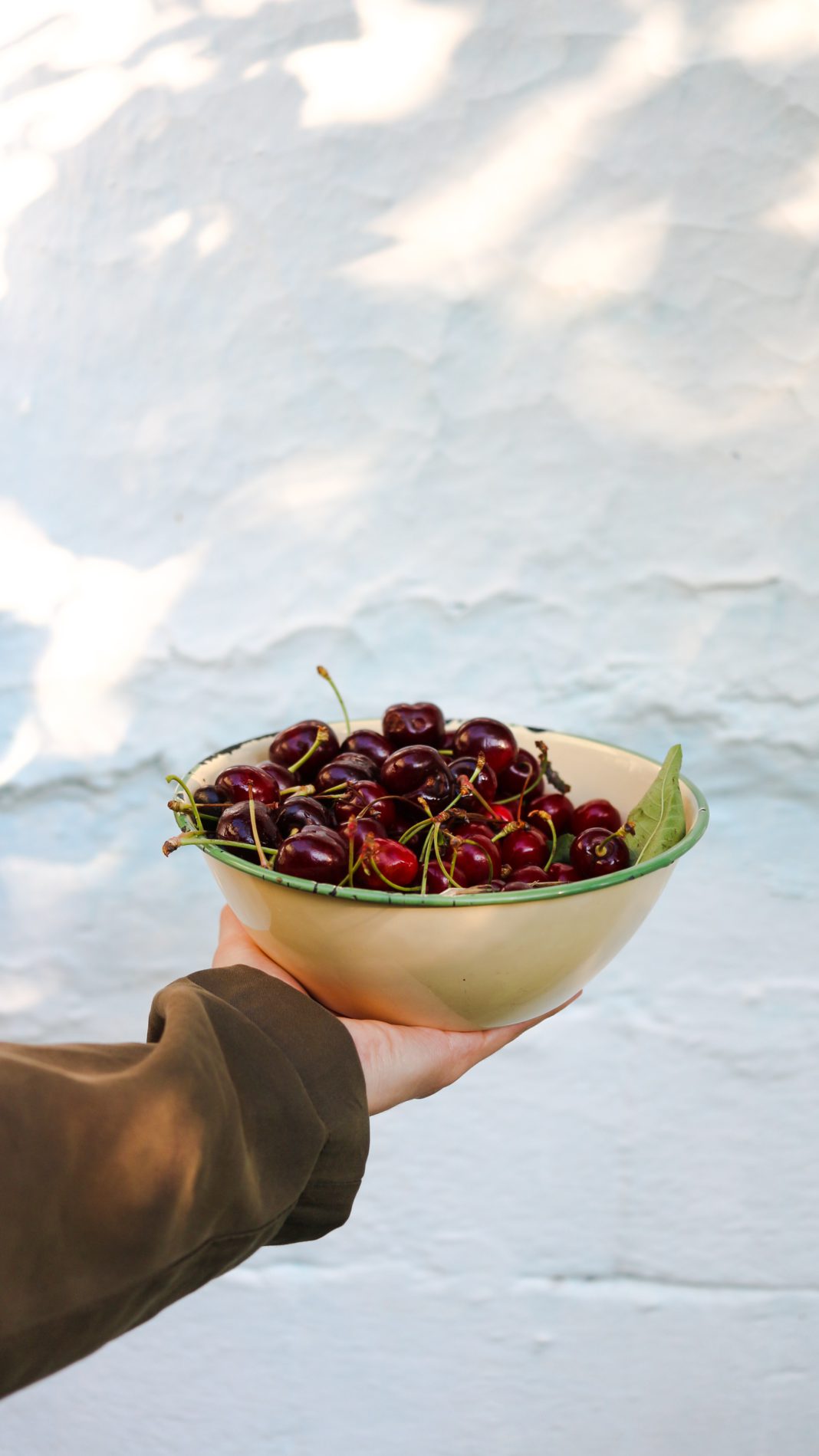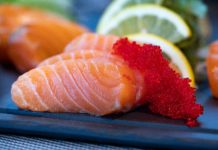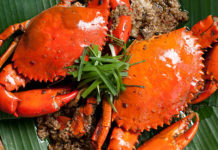“Intuitive Eaters march into their own inner hunger signals and eat whatever they choose without experiencing guilt or an ethical dilemma” – Evelyn Tribole.
Isn’t it time for all of us to build a healthy, stress-free relationship with our foods?
I guess most people reading this blog would agree that they have tried to put themselves on some diet or the other at some point in their lives.
Let us agree on this, most of you reading the blog have tried to put yourselves on some of the other diet plans at some point in your lives. Trust me, we all have been there. From a low-carb diet to a low-calorie diet, we have tried them all and restricted ourselves to extremes! But we often forget that eventually, such an attitude towards food can create problems with self-esteem and disturb our relationship with what we eat.
At this point, it becomes crucial to keep such diet plans in the past and follow a routine that allows you to eat intuitively!
So, here comes the next point of what exactly is Intuitive Eating?
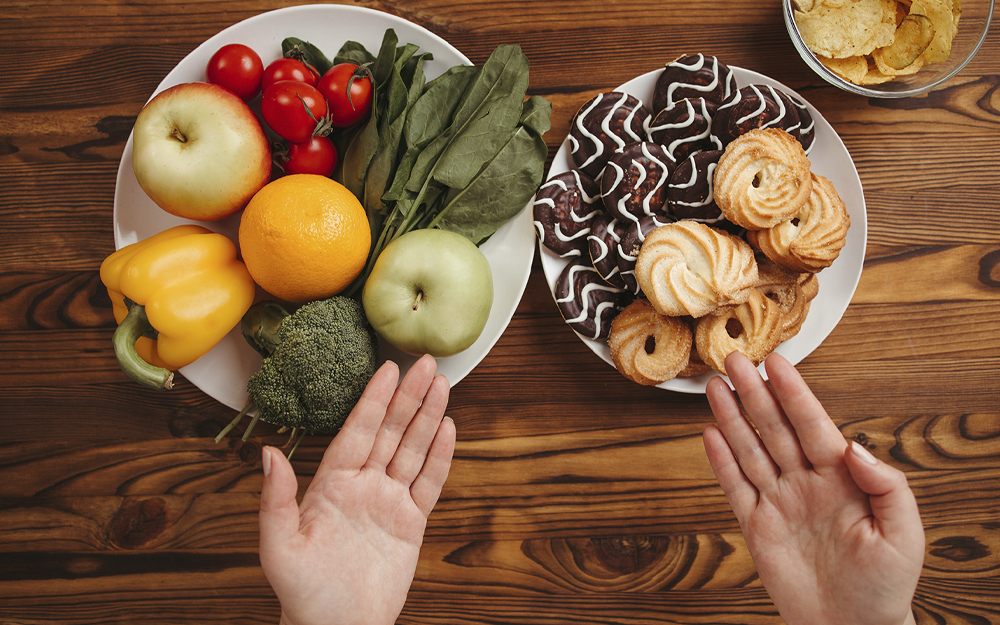
It is about indulging yourself in a pattern of eating that requires being instinctive and having rational thought and mindfulness. It is more like a self-care approach towards eating, backed with scientific evidence and clinical experiences! In 1995, dietitians Evelyn Tribole and Elyse Rech came up with this concept of Intuitive Eating. Later, a certified intuitive eating counselor at Humankind Psychological Services and a clinical psychologist, Paula Freedman calls this method the “self-care approach to eating”.
Intuitive eating (unlike diet plans – full of strict rules) is all about following certain principles. The first principle of Intuitive eating works by understanding the physical sensations that arise from within the body and then meeting both the psychological and biological needs. Second, comes the process of removing all the obstacles and disruptors that stops you from finding a sense of harmonies, such as rules, beliefs, and thoughts.
Also, there are a few do(s) and don’t (s) for practicing this method that is listed below:
- Leave behind the Diet Mentality
- Pay attention to your biological needs – Hunger
- Food should not disrupt your peace
- Challenging Food Police
- Pay attention to your Fullness
- Look out for Satisfaction from Food
- Respect your feelings without using Food
- Your Body is Everything – pay respect to that
- Exercise to feel the difference
- Add gentle nutrition to respect your Health
So, what are some benefits of practicing this pattern of eating?
To put it straight, Intuitive Eating is not meant for weight loss, but it is just the opposite!
Putting yourself on a diet might seem the easy way out to cut off some extra kilos. But in the long run, it can affect you both physically and mentally. In worst scenarios, you might end up losing a sense of your hunger and fullness cues.
The intuitive eating approach involves eating only when you are hungry and stopping once full! It also involves taking more whole grains, fatty foods, and lesser calories and lower sweet. So, it builds up healthier food behaviors rather than manipulating the scale. The goal here is to have a good relationship with food that goes into the body and does not give you the body size you want! It is about being stress-free and not thinking about food all the time. It allows your body to break free from a diet cycle and settle in its natural weight range.
So, with intuitive eating, it all comes down to three things:
1. Rejecting disordered eating habits
2. Promoting a positive body image
3. Encouraging better emotional relationships with foods
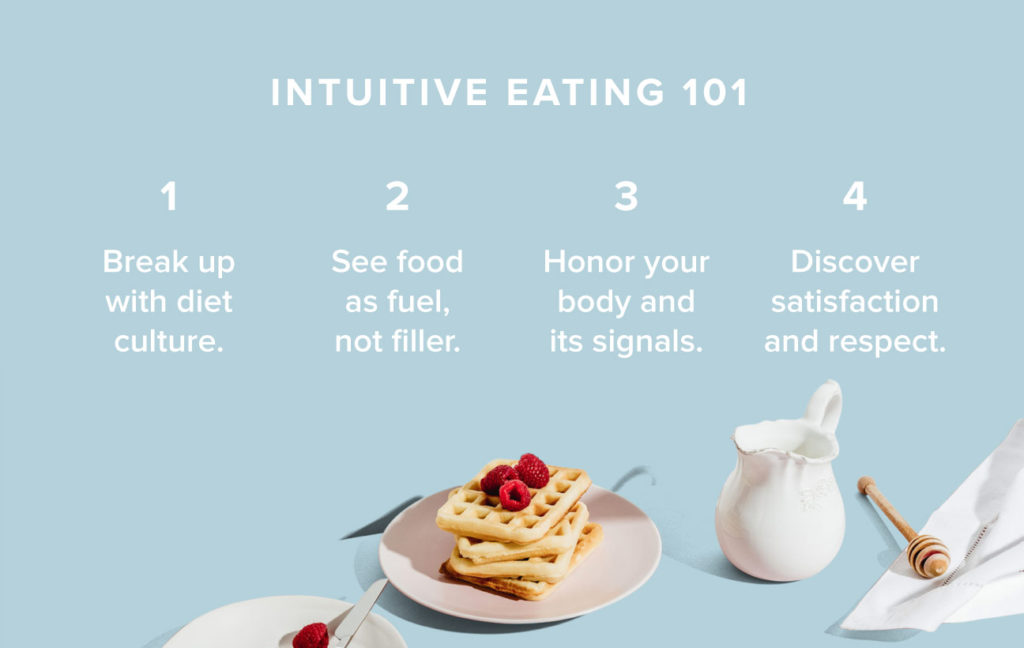
Final Thoughts:
So, are you ready to break up with your diet plan and follow a non-diet approach to eating? I hope you try this approach and get back in touch with your internal body cues. So if you are all set to let go of all those restrictions under diet that make you feel bad about yourself, here is Intuitive Eating for you! But before getting started, make sure you talk to a professional, like a registered dietitian, who will be able to guide you through the journey. So, make sure you consult one for sure!
I hope this blog turned out helpful. Stay tuned for more!

